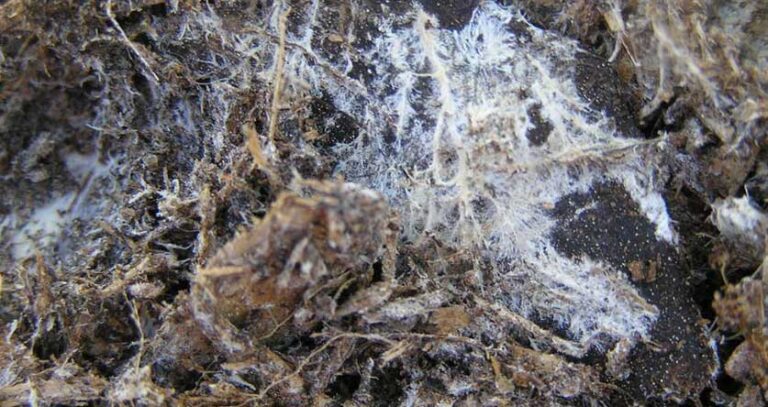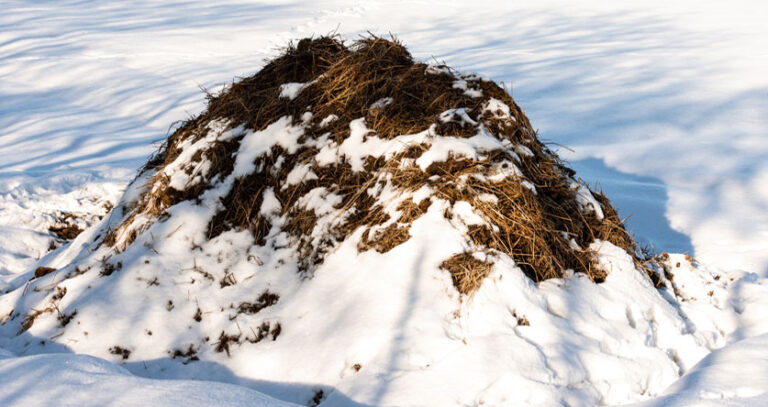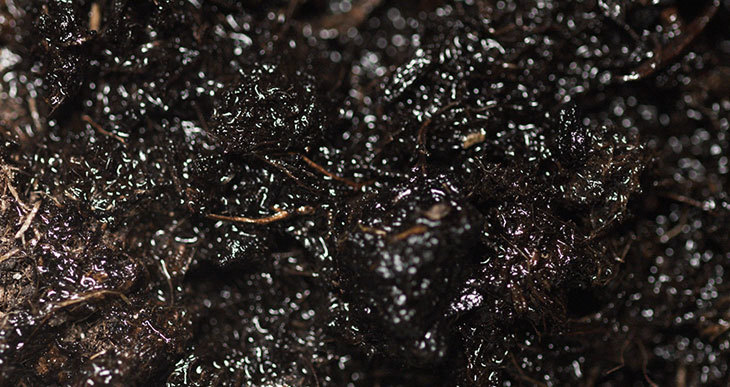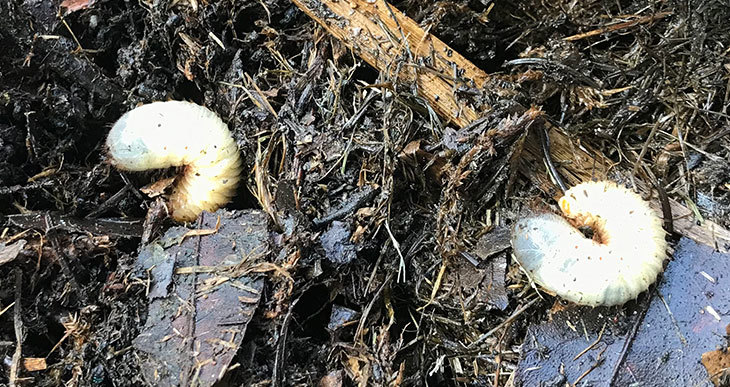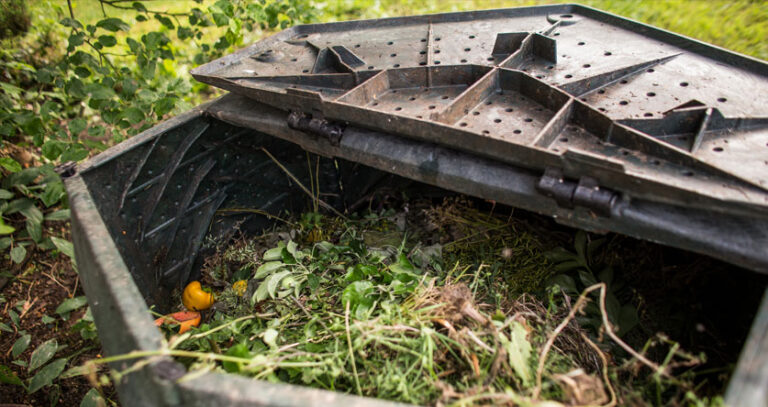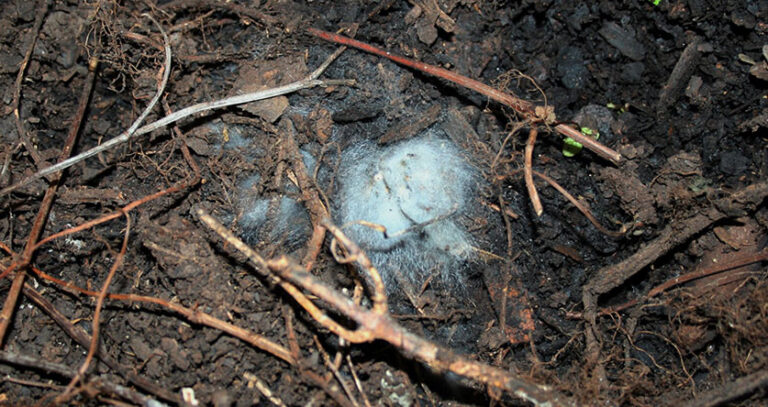Weeds in Compost (Keep it Weed-free!)
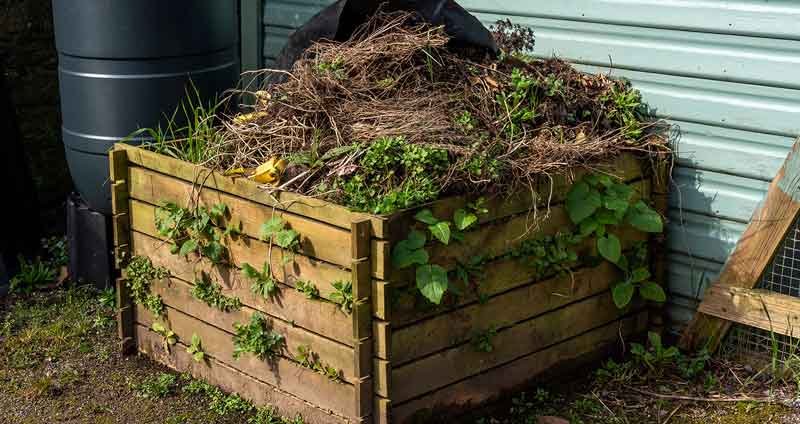
Imagine my surprise.
Opening up my compost bin one day, I found a bunch of weeds growing in my compost!
Weeds have evolved to become highly adept at surviving. Often, they out-perform the plants we actually want to grow!
Yes… You can dig them up, chop them into pieces, and torture them any way you want. They still survive.
Their continuing survival arises from the resilience of their roots, rhizomes, and seeds.
But all is not lost.
You can control weed growth in your compost pile if you take the proper steps. Keep reading to find out how…
Weeds growing in compost (bin, heap, or pile)
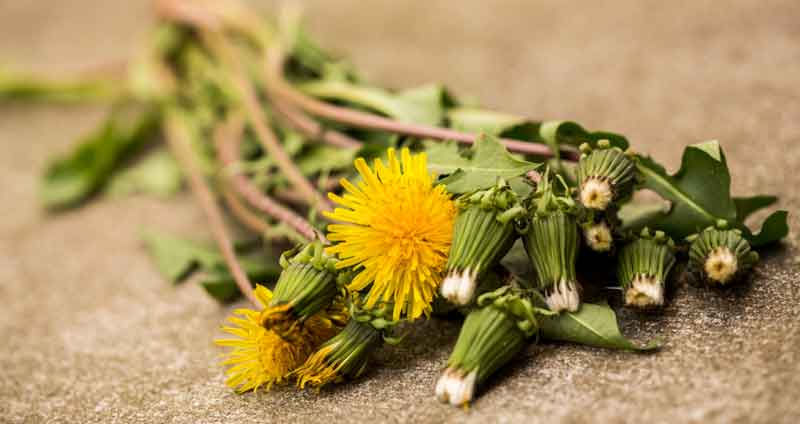
Weeds can easily find their way into compost as part of your composting process. The source of weeds in compost are the ingredients you’ve added – namely weed seeds, roots, and rhizomes that get mixed up with other materials.
Whatever method you use, whether it’s a bin or a pile, you will probably experience weed growth at some point or another. However, weeds are less likely to grow in a tumbler because of the dark environment.
Every time you mow the lawn, you’re probably not just collecting grass clippings but a multitude of weeds as well. Some common weeds, such as dandelions, can grow back from even the tiniest piece of root!
These invasive plants present several problems.
For a start, you risk introducing weeds in your garden beds when you use the finished compost. Also, the roots of weeds that grow in compost use up valuable moisture that your compost needs for balanced decomposition.
Some weeds are so resilient you might even find them in store-bought compost. If you see weeds growing in bagged compost, don’t throw it away. You can still reclaim the compost by mixing it into the center of a warm compost pile to let the weeds “cook.” Or use the compost by digging it deep into the soil to reduce the weed’s viability.
Do weeds grow in compost?
You’ll be amazed just how quickly weeds can grow in compost. Weed seeds or roots that have been left near the surface of the pile will germinate and start to grow. Invasive plant species have adapted over millennia to grow in the harshest conditions. And the compost in your heap is a nourishing environment favorable for weeds.
It’s not surprising they’re happy to spout up in the middle of your heap!
But if you find invasive plants thriving in your compost, there are a number of things you can do to remove and then prevent them from turning up again.
And the weeds themselves can be recycled and turned into compost! It would be a shame to waste them. After all, they’re a good source of organic material. You just need to know how to deal with them appropriately.
By the way, if you’re pulling weeds from your yard and throwing them on the compost heap, you need to know how to compost weeds properly (read this article).
How to get rid of weeds in compost
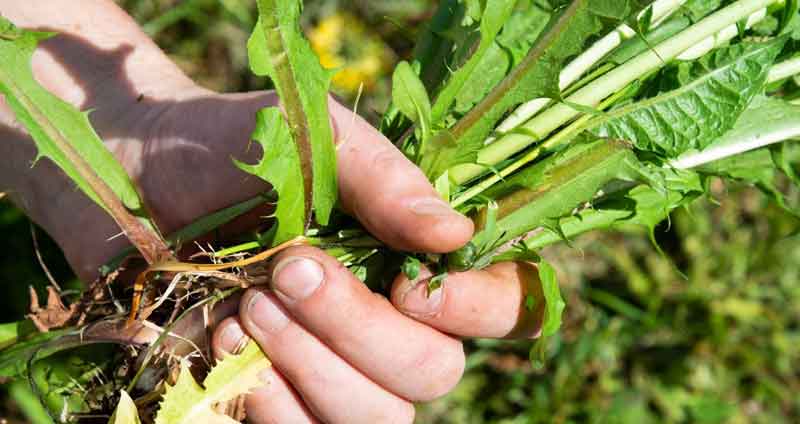
There are a few options available to remove weeds from your compost.
- Remove the weeds by hand. Pull out any weeds before they get too big. You can then leave them on the top of the pile to dry out and die before mixing them back into the middle of your heap. This reduces the chance of them germinating again, especially if the center of your pile is warm.
- Drown them. Keep a bucket of water near your compost and drop any weeds into it to soak for a couple of weeks. This should reduce their chances of survival. You can throw the weeds back on the compost and use the resulting “stewed” water to moisten the pile!
- Turn them into the center of the pile. Putting the weeds in the middle of the compost materials removes the source of light. This technique is helpful if you have too many weeds to be able to pick them out by hand. This should weaken them significantly. Mix them with some nitrogen-rich materials (coffee grounds, for example) to get them cooking.
- Bury the compost. If you’re planning to use your compost soon, don’t use weedy compost as mulch. Instead, bury it or dig it into your garden. This should reduce the chances of them spreading.
How to stop weeds growing in compost
If weeds are a constant problem and they keep cropping up in your compost bin, here are a few suggestions to prevent them from growing there in the first place:
- Cover your compost. Remember, weeds need daylight, like any other plants. Putting a cover over your compost reduces light exposure. It can even help retain some of the moisture needed by your compost.
- Hot composting. This is not as easy as it seems. Most home compost systems don’t achieve the temperatures needed to kill weed seeds. Temperatures need to reach at least 135°F (57°C) for a few days to effectively eradicate seeds. Make your heap large enough for good heat retention. Turning regularly moves materials on the cooler outer edges to the hot interior of the pile. Add plenty of nitrogen-rich material or manure to ensure a lot of microbial activity and high temperatures.
- Good weed management. Regular weeding helps reduce the quantity that ends up in the compost. Treat invasive plants by drying or drowning them before recycling them in your compost.
Note: If you use herbicides to treat your lawn, the chemicals can remain active and then harm plants when you use the compost. Most herbicides can take several months or longer to break down completely. Read the herbicide instructions before adding treated materials to compost.
If you manage your compost pile properly, this should reduce the chances of weeds’ survival. In the early stages of adding fresh materials, temperatures heat up. Some weeds can be killed in a warm compost pile reasonably quickly. But other hardier weed species can resist temperatures up to 145°F (63°C).
To know if your compost is hot enough, use a compost thermometer like this one (Amazon).
Conclusion: Weed free compost
Weeds can be frustrating in the garden and in your compost. But with a bit of effort, you can manage them effectively. Be sure to keep an eye on your compost and remove any weeds that appear. You can produce weed-free compost for your garden with some good management practices!
Don’t let weeds hijack your compost pile. Instead, recycle them properly and put them to use to make nutrient-rich soil amendment!


